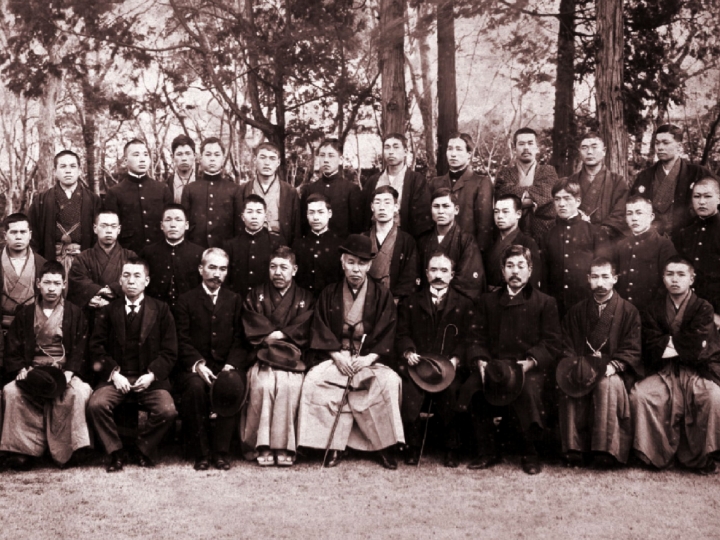- About the School
- History and Overview
History and Overview

 Since its foundation in 1882, Waseda University has developed alongside sport. It can be said that the foundations for modern sport in Japan would not have been possible without Waseda University. From the time of the university’s founding, its founder, Shigenobu Okuma, said “You must advance intellectual education, moral education and physical education in parallel”, so he actively encouraged student sporting activities. It is also not exaggerating to say that this thinking contributed greatly to things like the production of Japan’s first Olympic gold medalist and the spread of spectator sports among the citizens of Japan through the Waseda-Keio rivalry.
Since its foundation in 1882, Waseda University has developed alongside sport. It can be said that the foundations for modern sport in Japan would not have been possible without Waseda University. From the time of the university’s founding, its founder, Shigenobu Okuma, said “You must advance intellectual education, moral education and physical education in parallel”, so he actively encouraged student sporting activities. It is also not exaggerating to say that this thinking contributed greatly to things like the production of Japan’s first Olympic gold medalist and the spread of spectator sports among the citizens of Japan through the Waseda-Keio rivalry.
To this point, we has produced many top athletes, coaches, school teachers and experts in the management of sports groups and other organizations, and was among the first to adopt the stance of scientifically analyzing top level competitive abilities. The knowledge, skills and personal networks that support this stance have been passed down along with other traditions continuously over a long time at the university within its organizational culture.
Within this kind of tradition and culture, the university established a physical education course in the School of Education in 1964, the year the Tokyo Olympics were held, in response to demands for the systematization of sports education at the university, and started the elite education of a fixed enrollment of 120 students. In 1987, in response to the demands of the times, the university increased the fixed enrollment for males and females combined to 240 students, and organized physical education as the Department of Sports Sciences, School of Human Sciences at the newly established Tokorozawa Campus, which was equipped with the latest sports facilities and experimental facilities. Meanwhile, in 1991, the Graduate School of Human Sciences was opened because of the need to enhance specialist education, and research guidance on sport was set up within the Life Science major as well as the Health Science major. Sports research in the graduate school was further enhanced with the establishment of the sports science research field during organizational restructuring in 2000, and by fiscal year 2005, this had led to the establishment of research guidance in 19 areas.
In order to respond to diversifying, increasingly sophisticated and more specialized social needs for sports in an environment in which global and Japanese sport was reaching new heights, and to succeed to and develop the more than 100 years of sporting tradition and power of Waseda, the School of Sports Sciences became expansively independent from the School of Human Sciences in April 2003. The Graduate School of Sports Sciences was created in April 2006 and has taken on the functions of specialist education and research in sports science with the aim of cultivating professionals and scientists with cutting edge sports science knowledge and a passionate sports mind.In academic year 2008, it produced its first ten recipients of the doctoral degree in Sport Sciences.
In academic year 2009, the program “Sport Sciences for the Promotion of an Active Life” was selected under MEXT’s Global COE Program in the field of “Interdisciplinary, Combined, and New Areas,” in which nine universities nationwide were chosen. Furthermore, from academic year 2014, Waseda was selected for MEXT’s Top Global University Project (Type A), launching initiatives as a Health and Sport Sciences Hub under the slogan “Health Promotion: The Joy of Sports and Exercise,” with the aim of contributing to the health and happiness of people worldwide through sport. In addition, based on the future plan of the Faculty of Sport Sciences formulated in line with Waseda Vision 150, globalization was identified as a major pillar. In this context, the Super Global University Health and Sport Sciences Base was established in academic year 2014, an English-based doctoral program was launched in 2016, and an English-based master’s program was introduced in 2018, thereby advancing global specialized education and research in sport sciences.
